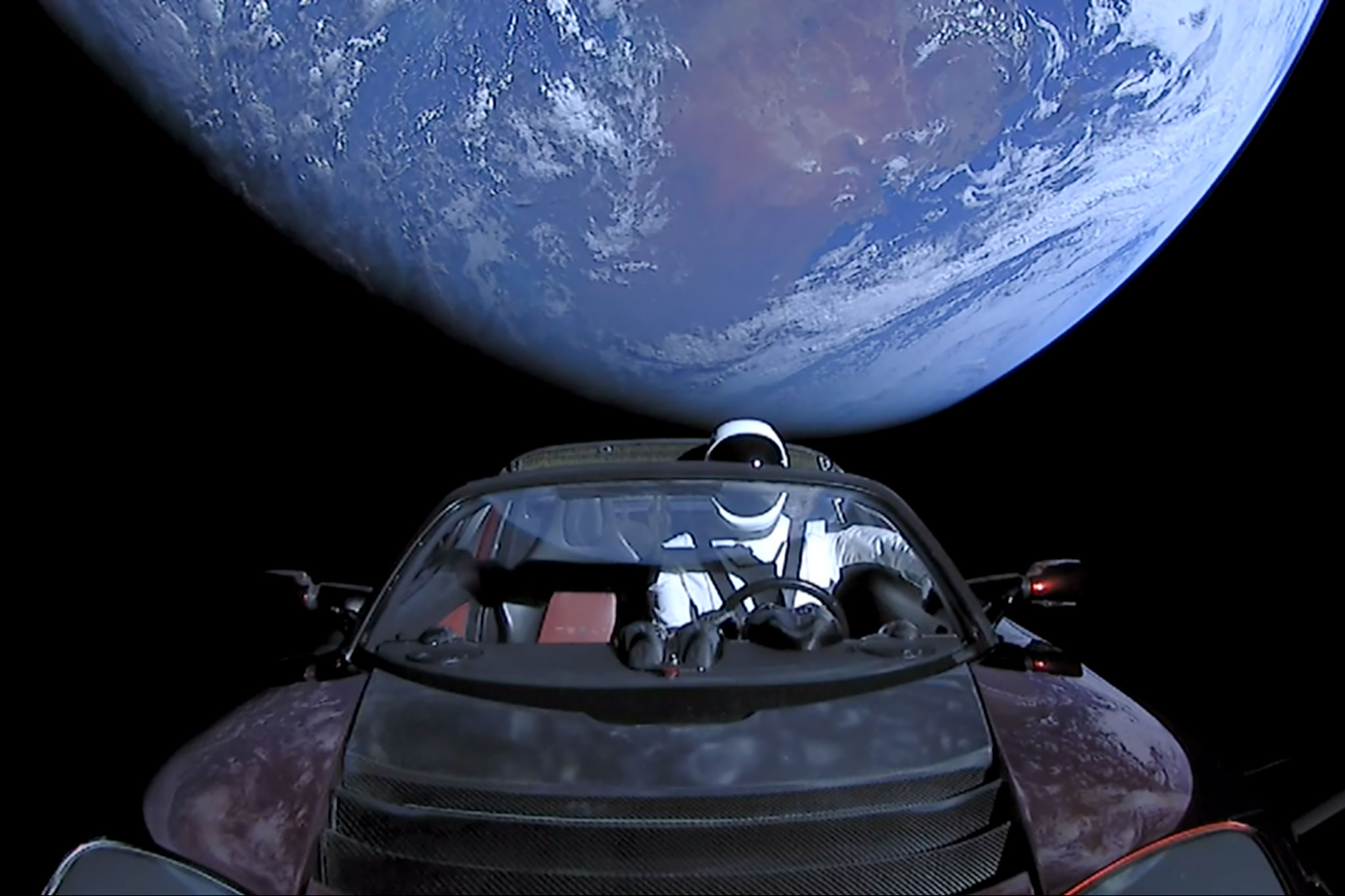
The successful launch of the SpaceX Falcon Heavy earlier this month was a landmark technical achievement, but it has quickly come to be symbolized by something a bit sillier — the image of a red Tesla Roadster floating through space, with a dummy in a spacesuit behind the wheel.
The car and its passenger — known as Starman — were the test payload for the Falcon Heavy, and they’re now on a long journey out into the solar system. If you’re curious what that path looks like, an aerospace engineer and SpaceX admirer has put together a website that uses NASA data to track the Roadster’s course. It’s called Where Is Roadster?, and it’s fascinating, with both live data on the Roadster’s location and an interactive tool that shows its future course.
It’s often mentioned that the Roadster is “on its way to Mars,” which can give the impression that it’s making a beeline for the Red Planet. But the Roadster, like all things in the galaxy, is subject to the tug of gravity, so instead of a straight path, it’s tracing a long arc away from Earth and the sun.
And the distances involved are truly vast. Right now, the Roadster is still much closer to Earth — 2.25 million miles away — than to Mars, 137.5 million miles away. Meanwhile, Mars is moving too, so when the Roadster first intersects its orbit this July, the planet itself will already be millions of miles away. After that, the Roadster will actually return to something close to Earth’s orbit, though again, Earth itself won’t be anywhere close.
According to the site’s data, which is taken from NASA’s Jet Propulsion Laboratory, the Roadster won’t actually be close to Mars until early October of 2020. And as far as we know, it doesn’t have any landing equipment or thrusters that would make it possible to actually get the car down to the surface.
Unless, of course, Elon Musk has another big secret up his sleeve.

